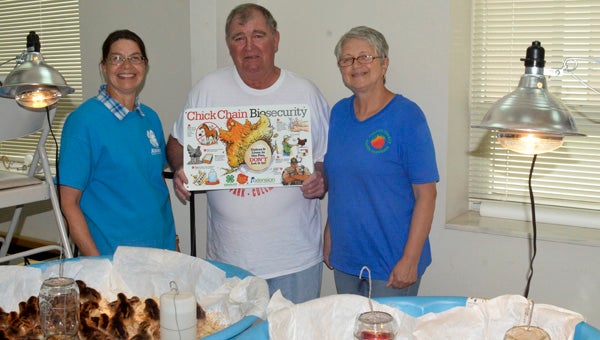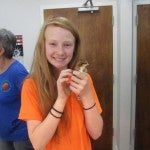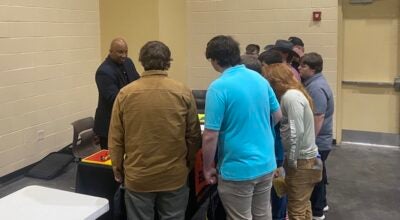‘Chick Chain’ uses poultry to teach responsibility
Published 5:22 pm Wednesday, April 27, 2016

Jo Walter, Jerry Farmer and Pat Farmer wait for children to arrive and claim their chicks for the “Chick Chain” project on Wednesday. (Photo by Anthony Richards)
The Chilton County Extension Office was chirping with excitement on Wednesday as kids picked up their chicks for the second annual “Chick Chain” project.
Nineteen participants between the ages of 9 and 16 from throughout the area are taking part in the project.
“At least one child is represented from each of the county schools, including five returnees from last year,” Alabama 4-H County Agent Jo Walter said.
Those involved were selected through an open registration that took place in February.
According to Walter, each participant receives 10 chicks between two different types of chicken.
This year, the breeds include “Speckled Sussex” and “Dominique.”

Isabella fifth grader Haylee Matthews holds up a chick that she chose during the “Chick Chain” project’s first day on Wednesday. (Photo Contributed)
After the kids spend 20 weeks raising the hens, two are brought back to participate in breed and showmanship shows at Cattleman’s Barn on Sept. 10. Times for the event are to be determined.
According to Walter, the goal of the project is to teach kids flock management and the skills involved in properly raising eggs.
A manual is provided to each participant and serves as a guide to offer assistance in caring and constructing a shelter for the birds.
“The project introduces the role of responsibility to children,” Alabama 4-H volunteer Jerry Farmer said.
An auction is scheduled to take place after the shows, which are designed to pay back the initial $35 registration fee for each kid involved in the project, as well as awards that will be handed out at the end.
“It pays the money necessary for the event to happen again next year,” Walter said.
Of the 10 hens, the project participants are allowed to keep eight for free, Walter said. One hen will lay an average of four to six eggs per day.
The project is a statewide initiative with each 4-H program having the opportunity to get their community involved.
“Not everyone can afford a 1,200-pound steer, but most people have the room for eight chickens,” Walter said.






